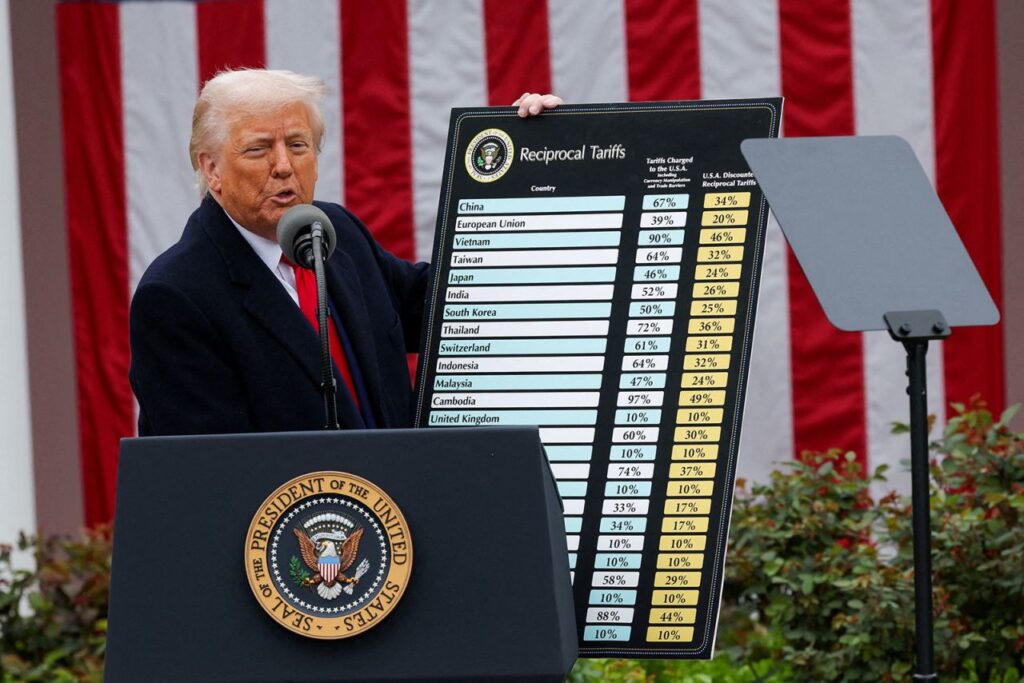President Donald Trump has directed the Department of Commerce to investigate the potential for imposing tariffs on critical mineral imports.
This move, outlined in an executive order, underscored the administration’s concerns about the United States’ heavy reliance on foreign suppliers, particularly China, for essential materials critical to national security and economic resilience.
The executive order highlighted the vulnerabilities in the global supply chain for critical minerals, which include rare earth elements, cobalt, nickel, and uranium.
“Processed critical minerals and their derivative products face significant global supply chain vulnerabilities and market distortions due to reliance on a small number of foreign suppliers.”
President Donald Trump
These materials are indispensable for industries ranging from defense and aerospace to renewable energy and advanced electronics.
The directive tasks the Department of Commerce with assessing the risks posed by this dependency and exploring the feasibility of tariffs under Section 232 of the Trade Expansion Act of 1962.

This section allows the president to impose trade restrictions if imports are deemed a threat to national security.
China’s overwhelming control of the critical minerals market is a key factor driving this initiative. The country accounts for approximately 90% of global rare earth production and dominates the processing capacity for these materials.
This monopoly has long been a point of contention, with critics arguing that it gives Beijing undue leverage in geopolitical and economic disputes.
Recent actions by China have only heightened these concerns. Last week, Beijing imposed export curbs on certain critical minerals, echoing similar measures taken during a trade dispute with Japan several years ago.
These restrictions have underscored the risks of over-reliance on a single supplier and have prompted calls for diversification of supply chains.
Building a Domestic Supply Chain

While the goal of reducing dependence on Chinese imports is laudable, achieving it will be no small feat.
The United States currently has limited capabilities for extracting and processing critical minerals. For instance, it has only one operational rare earth mine and relies heavily on China for nearly all its processed supply.
Building a domestic supply chain from scratch will require significant investment and time. Environmental concerns pose another major hurdle, as opening new mines often faces strong opposition from advocacy groups.
Abigail Hunter, Executive Director of SAFE’s Center for Critical Minerals Strategy noted, “The U.S. needs to balance its strategic goals with environmental sustainability.”
Imposing tariffs on critical mineral imports is not without risks. Such a move could lead to higher costs for U.S. manufacturers and consumers, particularly in industries heavily reliant on these materials. It could also provoke retaliatory measures from China, further straining bilateral relations.
However, proponents argue that the long-term benefits outweigh the short-term challenges. Diversifying supply chains and investing in domestic production could enhance national security, create jobs, and reduce economic vulnerabilities.
“An overreliance on foreign critical minerals… could jeopardize U.S. defense capabilities, infrastructure development, and technological innovation.”
President Donald Trump
The international community is closely watching these developments. Western nations have long sought to reduce their dependence on Chinese critical minerals, but progress has been slow.
Trump’s initiative could serve as a catalyst for broader efforts to develop alternative supply chains.
China, for its part, has criticized the move as protectionist and warned of potential repercussions. Trump remarked, “The ball is in China’s court,” signaling his willingness to escalate the trade offensive if necessary.
The Department of Commerce has 180 days to complete its investigation and submit recommendations. The findings will likely shape the administration’s next steps, which could include imposing tariffs or implementing other measures to bolster domestic production.
As the U.S. navigates this complex issue, the stakes are high. The outcome will not only impact the critical minerals market but also set the tone for future trade relations between the world’s two largest economies.
READ ALSO: GUTA Slams Tariff Hikes Amid Utility Rot























